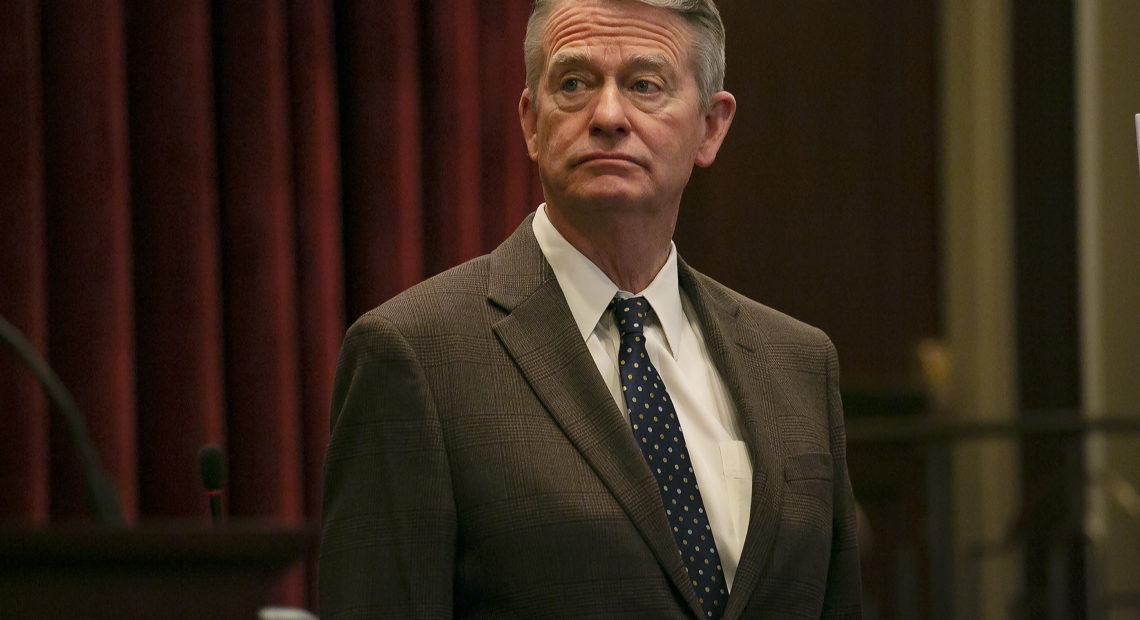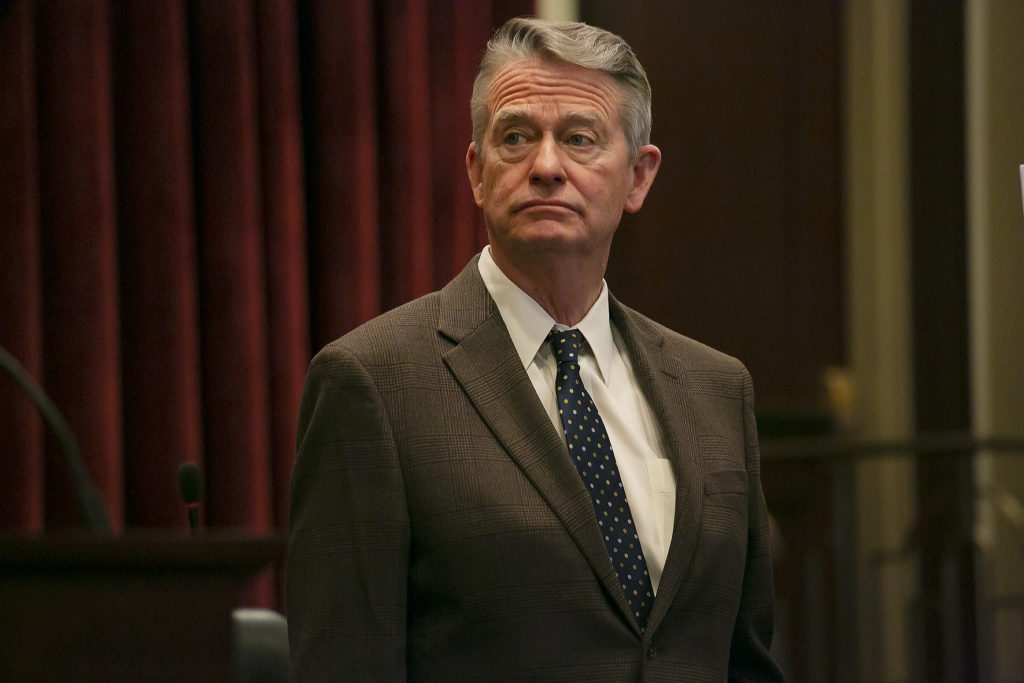
Idaho Gov. Brad Little Orders Statewide Budget Cuts In Face Of Widening Coronavirus Fallout
BY KEVIN RICHERT / IdahoEdNews.org
Gov. Brad Little Friday ordered an across-the-board 1 percent budget holdback — the state’s most aggressive response to date to the economic aftershocks from the global coronavirus pandemic.
The holdbacks will affect nearly every state agency, including public schools and higher education. But state officials believe federal stimulus dollars will offset the cuts to public schools.
By the numbers, Little’s decision will cut state spending by $40 million, from a state general budget of close to $4 billion. State agencies will have to move quickly, imposing the spending cuts over the final three months of a budget year that ends June 30.
But Little also said the budget situation has deteriorated quickly, and he projects that the state has lost $40 million in tax revenues within a matter of days.

In the face of rising unemployment and shriveling tax revenues, Gov. Brad Little cut state spending by $40 million Friday. “We know this number is going to be necessary.” CREDIT: Sami Edge/Idaho EdNews
“It’s gone,” Little said during a Friday afternoon news conference.
On Wednesday, Little issued a far-reaching stay-at-home order that closed nonessential businesses, such as restaurants, gyms, recreational facilities and bars, among others. But even before the order, many Idaho businesses had already been cutting jobs and curtailing services.
That economic tsunami was reflected in a sharp spike in unemployment claims. Last week, 13,341 Idahoans filed new claims for unemployment insurance benefits. The preceding week, only 1,031 Idahoans had filed such claims.
Before the coronavirus pandemic had reached Idaho, Little said, the state was on pace to post a minuscule 2.7 percent unemployment rate in March. State officials are not speculating on where the unemployment rate is headed now — and state Labor Department Director Jani Revier said states have been cautioned against releasing “draft” numbers, for fear of causing even more stock market uncertainty.
“We know they’re going to be a lot worse than 2.7 (percent),” Little said of the next round of numbers. “We know it’s not good.”
Public schools receive, by far, the largest share of the state’s general fund budget. So the 1 percent holdback has the largest impact on public schools — a projected $19 million.
But state officials say two factors should soften the blow for K-12.
- The first is an infusion of money from Uncle Sam. On Friday, the House approved a $2 trillion coronavirus economic stimulus bill, sending it to President Trump’s desk. The bill includes roughly $13.2 billion to stabilize states’ K-12 budgets. Idaho’s share should offset the state’s budget cuts, Superintendent of Public Instruction Sherri Ybarra said in a Friday memo to district superintendents and charter administrators. And the numbers would appear to bear that out; according to a memo from the Congressional Research Service, Idaho could receive about $48 million from the feds to cover K-12 costs.
- The second factor is a short-term decrease in education costs. All Idaho schools are closed through at least April 20, under a “soft closure” imposed by the State Board of Education Monday. Schools are shifting to an online learning model, but with classrooms off-limits to the state’s 300,000 students, districts and charters should see a drop in some “variable costs,” Little said.
Last fall, months before the pandemic, Little asked most state agencies to cut their budgets for 2019-20 and 2020-21. He spared public schools from those cuts, and contemplated doing the same this time around. “I gave it deep thought.”
But only health care agencies — such as the state’s public health districts — will be exempt from this new round of budget cuts.
While the schools await an infusion of stimulus money from the feds, they won’t see a dropoff of state support for weeks. The holdback will appear in the May 15 payments the state sends to local schools. “Maximum flexibility will be given to districts and charters to adjust their budgets,” Ybarra said Friday.
It’s not immediately clear how the holdback will affect Idaho’s colleges and universities. A 1 percent cut translates to roughly $3 million for the state’s four-year institutions.
But again, federal money could provide an offset. Nearly $14 billion in the federal stimulus package is earmarked to higher education — both for emergency student financial aid and support for institutions. It’s unclear how much of that money would come to Idaho. In addition, governors will receive nearly $3 billion they can inject into higher education or K-12. Little’s share could come to roughly $16 million, according to the Congressional Research Service.
And like K-12, Idaho’s college and universities are also making a rapid transition to online delivery — a transition that could affect the system’s operating costs in the short term.
Originally posted on IdahoEdNews.org on March 27, 2020.
NOTE: Idaho Education News is an underwriter of NWPB programming, though NWPB is editorially independent. See all NWPB business supporters here. This article is re-published with permission.















